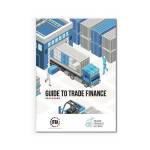Trade Finance Providers

This content was produced in conjunction with ITFA.
Access trade, receivables and supply chain finance
We assist companies to access trade and receivables finance through our relationships with 270+ banks, funds and alternative finance houses.
Get StartedContents
Trade finance is a type of business funding, which is typically purchase order driven and helps release working capital into a business. Trade finance is an overarching term for many types of debt finance, including supplier finance, invoice finance and letters of credit, and providers aim to identify and help businesses requiring this. This type of finance is built on the premise that buyers want to pay for goods as late as possible, and suppliers want payment as early as possible, therefore bridging this finance gap and instigating trust between both parties is the job of a trade finance provider.
Trade finance providers include funding institutions, banks, funds or alternative financiers, who provide capital for the physical buying and selling of goods.
Lending can be structured in many different ways depending on the size of a borrowing company and the funder’s source of capital, along with the restrictions that are placed on them. This will usually dictate the price that they will lend at and how they advance funds. This may also impact on what security they take, length of time credit assessment will take and the tenor that they will advance funds for.
The source of capital and structure of a lender is very important as this dictates many elements within the facility.
An example of this is a government owned bank when compared to a private investment fund where the capital of the partners is pooled. A bank will have relationship managers, someone who writes up the proposal, a credit and underwriting team and very defined policies on what can and cannot be lent on. In the event that the financial institution is government owned, there will inevitably be other strict criteria that is placed upon them. However, in the event that a private funder looks at a company where all funds are pooled by those in the company; the policy will be different. There will be greater flexibility as outside stakeholders and internal hierarchy will not be as difficult to navigate through. Also, the regulatory burden will inevitably be smaller or non-existent due to how they will be characterised or rated.
Types of trade finance include:
- Letters of credit
- Stock finance
- Supply chain finance
- Pre export finance
- Import finance
- Invoice finance
- Accounts receivables finance
Who are the trade finance providers?
Trade finance providers may be many lenders in different fields who facilitate trade. As mentioned above, they may come in many different forms. At Trade Finance Global we aim to seek out lenders of all sizes to understand what they require and the area of niche that they operate within. We will then work with financiers and potential borrowers to structure the right package for long-term growth.
Trade finance providers will attempt to understand the underlying risk of the borrowing company. They will also look wider to understand the trade cycles, underlying goods, creditor book, debtor ledger and stock held. This will be along with understanding performance of the company and any underlying assets. All of this is needed to understand the picture of the company in totality and what is required in the future. Knowing the companies who are involved in the chain is key; as having a complete understanding of where the risks lie is fundamental to pricing and structuring any facility.
Trade finance providers may be situated all over the world and may specify jurisdictions that they can lend into; or work with only one jurisdiction. It is important to understand a trade finance provider’s policy and what they specialise in. This will help with ascertaining whether working together is a good fit.
What are the main types of finance used for purchase orders and sales?
The most typical facilities for cross border traders are:
Supply Chain Finance
For larger corporates looking for working capital solutions.
Find out more
Letters of Credit
LCs issued by a funder to help trade goods overseas.
Find out more
Structured Commodity Finance
Trade hard and soft commodities on thinner margins overseas.
Find out more
Invoice Finance
Release cash from invoices or accounts receivables.
Find out more
Our trade finance partners
- Trade Finance Resources
- All Trade Finance Topics
- Podcasts
- Videos
- Conferences
- Products we finance




















